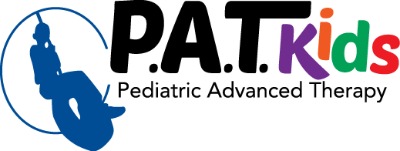About Job
Description
Sign on Bonus : A $2000, $3000, $4000 sign on bonus is available depending on the position and qualifications of the Individual selected.
This is advanced, professional level casework position providing protective, investigative, counseling and case management services for children who are at risk for neglect and/or abuse, and/or dependency.
Employee provides social work services including treatment and immediate response to crisis situations for at-risk children in the most complex cases. Work may involve any number of tasks associated with investigation and/or assessment of alleged abuse, neglect, or dependency and substantiation of the allegation as prescribed by federal and state guidelines, providing expert testimony in court hearings, and following-up with case management and preventive services for clients. Employee analyzes situations and determines appropriate courses of action immediately or in short time spans and often under very stressful conditions. CPS social workers are responsible for accessing, identifying, and documenting abuse and neglect cases and finding the appropriate services to enhance child welfare. CPS social workers must be able to identify immediate threats made to a child and provide arrangements that comply with state and federal laws and agency procedures. These duties may include, but are not limited to:
- Receive referrals of clients with a variety of problems which require social work assessment and/or intervention and make initial contact. Investigations and/or assessments must be initiated within the timeframes defined by NC General Statutes and related CPS policy manuals and can be immediate depending on the nature of the allegation(s).
- Petition the court for immediate custody of the child or children and arrange for placement in a licensed foster home or in an approved relative placement in situations where it is determined that the children are at immediate risk and the family is unable or unwilling to provide a safe, alternate plan.
- Maintain the case, including making all required contacts and completes all required documentation, until case transfer to a foster care social worker is complete.
- Conduct investigations/assessments using a standard of fact-finding through interview, home visits, collateral contacts and/or other investigations in accordance with NC General Statues and CPS policy. Timely face-to-face contact with the family is required throughout the investigation and/or assessment phase.
- Prepare social histories and family assessments. Document facts within the parameters of legal definitions of abuse, neglect, or dependency and the level of child well-being, evaluate information against risk factors.
- Determine (make a case decision) if abused, neglected, or dependent or if the family is in need of services and what level of intervention is necessary to assure safety.
- Inform clients of available programs and services to meet their individual needs, and encourage participation in the most appropriate activities. In the course of providing child protective services, the CPS social worker should have a clear understanding of the legal basis for intervention on an involuntary basis and to accept the responsibility for offering services to involuntary clients.
- Review results with supervisor and make recommendation concerning case disposition.
- Complete CPS investigations and/or assessments as defined by statutes and policy within required timeframes. Activities to complete assessment/investigative cases in CPS can include transfer to foster care, transfer to in-home services, or case closure with no services required. The CPS social worker should minimize the intrusion into the family without increasing the risk of harm for children.
- Maintain detailed case records and develop and prepare statistical reports as required. Documentation must be clear, concise, professional, and up-to-date. Contacts with children, parents, and collaterals must be thoroughly documented. Collateral contact may include, but are not limited to, extended family members, neighbors, school personnel, medical personnel, mental health professionals.
- Use prescribed tools and/or forms as required by policy. These tools/forms may be part of a technology system such as an electronic case management system, electronic document storage system, or NC FAST and can be part of a web based interface or standalone software driven.
- Employee performs on-call duties when assigned.
- Employee provides court reports and/or expert testimony in court as required.
- Employees engages in relationship building: Builds rapport up, down, and across the organization; Establishes collaborative relationships to achieve objectives; Seeks win-win solutions to conflict; Develops network of professional contacts; Displays empathy and tolerates diverse viewpoints.
Minimum Education and Experience
Master’s degree from an accredited school of social work and one year of social work experience; or a Bachelor’s degree from an accredited school of social work and two years of social work or counseling experience; or Master’s degree in a counseling field and two years of social work or counseling experience; or a four-year degree in a human services field or related curriculum and three years of social work or counseling experience; or graduation from a four-year college or university and four years of experience in rehabilitation counseling, pastoral counseling or a related human service field providing experience in the techniques of casework, group work or community organization; or an equivalent combination of training and experience.
One year of work experience can be credited for completion of the social work collaborative.
Special Comments
Variety and Scope – Employees manage a caseload of clients in the most difficult and complex cases. Work may involve providing treatment in group, family or individual therapy to clients of any age and/or with any developmental, mental, medical, financial, substance abuse or family problem including abused, neglected or homeless children. Work includes clinical and social investigation, assessment of individuals and family dynamics, crisis intervention, referrals for treatment and placement in foster care or residential facilities. Employees provide expert testimony.
Intricacy – Employees exercise considerable judgment in determining whether abuse or neglect has occurred, to what extent and how it occurred. The selection of appropriate treatment for the family and clients requires significant understanding of their personalities based on assessments and interviews.
Subject Matter Complexity – Employees must understand social work theory, techniques and practices, individual and group behavior, social problems, medical and mental illness, family dynamics, coping behavior, crisis intervention, and treatment of various medical and mental diseases and social issues.
Guidelines - Guidelines include state and federal laws, program rules, directives, policies and regulations, professional ethics and quality assurance standards.
Thorough knowledge of social work principles, techniques and practices and their applications to complex casework, treatment, and investigation of abuse or neglect of children; thorough knowledge of policies and procedures as evidenced by the ability to cite the authority of federal and state law; thorough knowledge of individual and group behavior, family dynamics, and medical, behavioral and/or psychosocial problems and their treatment theory. Considerable knowledge of governmental and private organizations and resources in the community. Ability to interact and motivate a resistant involuntary client population and the public who may not agree with the laws, rules or policies of the process or the programs; ability to prepare documentation such as written investigative reports for the court, case records and treatment plans; ability to testify as an expert witness; ability to employ advanced case management interview techniques to establish a supportive relationship and involve families in the initial assessment for the need of services; ability to quickly assess the risks and safety of the client environment during daylight hours, after dark and in high crime areas; ability to employ expert negotiation skills in the most complex cases; ability to analyze and assess child development safety issues in relation to risk factors; ability to analyze tense family situations and make decisions about removing children when the decision has to be made with limited direct information and limited access to consultation; ability to communicate effectively and establish supportive client relationships. Ability to perform manual work exerting up to 50 pounds of force occasionally and/or up to 10 pounds of force constantly to move objects.
Professional Field
 Counseling
Counseling Social Work
Social Work Other Behavioral, Mental, or Healthcare Field
Other Behavioral, Mental, or Healthcare Field







